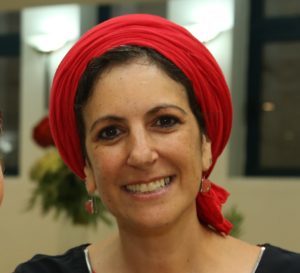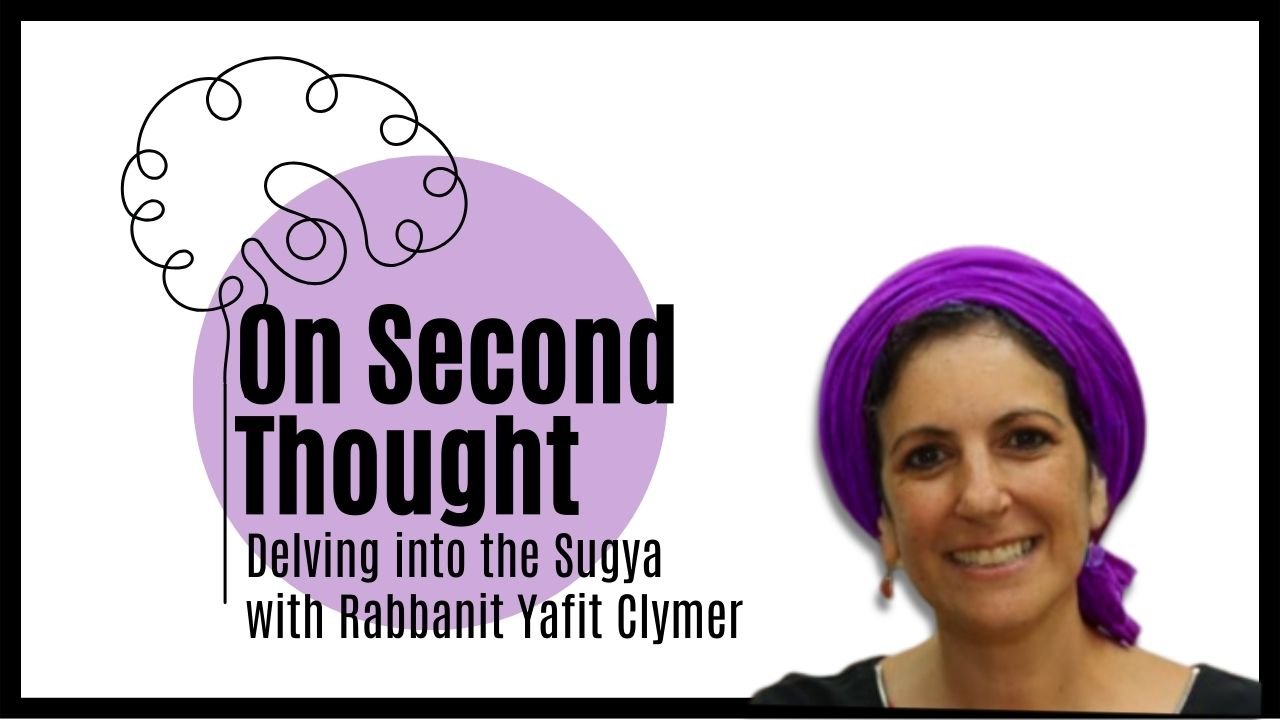On Second Thought: Delving Into the Sugya with Rabbanit Yafit Clymer
Bava Batra 59-60
Listen here:
Watch here:
Sources:
MISHNA: A person may not open an entrance opposite another entrance or a window opposite another window toward a courtyard belonging to partners, so as to ensure that the residents will enjoy a measure of privacy
GEMARA: The Gemara asks: From where are these matters, i.e., that one may not open an en-trance opposite another entrance, or a window opposite another window, derived? Rabbi Yoḥanan says that the verse states: “And Balaam lifted up his eyes, and he saw Israel dwelling tribe by tribe; and the spirit of God came upon him” (Numbers 24:2). The Gemara explains: What was it that Balaam saw that so inspired him? He saw that the entrances of their tents were not aligned with each other, ensuring that each family enjoyed a measure of privacy. And he said: If this is the case, these people are worthy of having the Divine Presence rest on them.
בבא בתרא נ״ט ב – – מתני׳ לא יפתח אדם חלונותיו לחצר השותפין
MISHNA: A person may not open his windows, i.e., build an opening in a wall to use as a window, into a courtyard belonging to partners, i.e., a courtyard in which he is a partner.
שולחן ערוך, חושן משפט קנ״ד:ג׳
(c) A person shall not open a window to his friend’s yard and even one of the partners in the yard who wants to open a window for him inside his house to the yard is prevented by his partner because he is looking at him from it…
A person should not open a shop against his friend’s door or window because it is always a permanent harm that the masses pass by and do not always look at him, but he sits in his shop all day and looks at his friend’s door or window, therefore he should move away to the point where he cannot see him at all:
Seder Rav Amram Gaon 9th Century, Sura, Babylonia
One who enters a synagogue says: “How goodly are thy tents, O Jacob, Thy dwellings, O Israel!” (Numbers 24:5).
But as for me, in the abundance of Thy lovingkindness will I come into Thy house; I will bow down toward Thy holy temple in the fear of Thee.” (Psalms 5:8)
Maharshal (R. Shlomo Luria, 1510-1573, Poland) Responsa of Maharshal 64
When I come to synagogue I begin with the verse “But as for me, in the abundance of Thy lovingkindness…” (Psalms 5:8) and skip the first verse “How goodly are thy tents” (Numbers 24:5) because Balaam said it [first] and he said it as a curse as we find in Sanhedrin 105b, and this is not its proper place.
(א) (ב) וַיִּשָּׂ֨א בִלְעָ֜ם אֶת־עֵינָ֗יו וַיַּרְא֙ אֶת־יִשְׂרָאֵ֔ל שֹׁכֵ֖ן לִשְׁבָטָ֑יו וַתְּהִ֥י עָלָ֖יו ר֥וּחַ אֱלֹהִֽים׃ (ג) וַיִּשָּׂ֥א מְשָׁל֖וֹ וַיֹּאמַ֑ר נְאֻ֤ם בִּלְעָם֙ בְּנ֣וֹ בְעֹ֔ר וּנְאֻ֥ם הַגֶּ֖בֶר שְׁתֻ֥ם הָעָֽיִן׃ (ד) נְאֻ֕ם שֹׁמֵ֖עַ אִמְרֵי־אֵ֑ל אֲשֶׁ֨ר מַחֲזֵ֤ה שַׁדַּי֙ יֶֽחֱזֶ֔ה נֹפֵ֖ל וּגְל֥וּי עֵינָֽיִם׃ (ה) מַה־טֹּ֥בוּ אֹהָלֶ֖יךָ יַעֲקֹ֑ב מִשְׁכְּנֹתֶ֖יךָ יִשְׂרָאֵֽל׃ (ו) כִּנְחָלִ֣ים נִטָּ֔יוּ כְּגַנֹּ֖ת עֲלֵ֣י נָהָ֑ר כַּאֲהָלִים֙ נָטַ֣ע ה’ כַּאֲרָזִ֖ים עֲלֵי־מָֽיִם׃
As Balaam looked up and saw Israel encamped tribe by tribe, the spirit of God came upon him. Taking up his theme, he said: Word of Balaam son of Beor, Word of the man whose eye is true, Word of one who hears God’s speech, who beholds visions from the Almighty, Prostrate, but with eyes unveiled:
How fair are your tents, O Jacob, Your dwellings, O Israel!
Rashi
(5) מה טבו אהליך HOW GOODLY ARE THY TENTS — He said this because he saw that the
Another explanation, the tent of Shiloh and the Temple when these flourished, in that sacrifices were offered therein to alone for you
שני לוחות הברית, תורה שבכתב, בלק, נר מצוה ב׳
אין בפרשה זו מצוה ממצות תרי”ג, מכל מקום כתיב בה (במדבר כד, ה) מה טובו אהליך יעקב משכנותיך ישראל, ואמרו רז”ל (הובא ברש”י במדבר כד, ה) מה טובו אהליך בישובן, משכנותיך ישראל אפילו בחורבנן. ותנן במסכת מגילה פרק בני העיר (כח, א) שנוהגין בהן כבוד בחורבנן כמו בישובן. והאריכו שם בגמרא:
(ה) יוֹסֵי בֶן יוֹחָנָן אִישׁ יְרוּשָׁלַיִם אוֹמֵר, יְהִי בֵיתְךָ פָתוּחַ לִרְוָחָה, וְיִהְיוּ עֲנִיִּים בְּנֵי בֵיתֶךָ…
(5) Yose ben Yochanan, man of Jerusalem, says, “May your home be open wide, may the poor be members of your household…
![]()
Hadran’s Beyond the Daf shiurim are also available by podcast on
Beyond the Daf is where you will discover enlightening shiurim led by remarkable women, delving deep into the intricacies of Talmudic teachings, and exploring relevant and thought-provoking topics that arise from the Daf.





